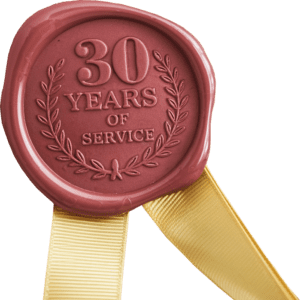How a CRM can be a better kind of insurance
Or, how CRM saved my neck.
If I didn’t have a CRM I could have been in a world of hurt right now. Or at least, a different kind of hurt. Because I use a CRM as the central nervous system of my business, I have an in-built insurance that guarantees the business can keep running, even if I can’t.
Let me explain.
On the weekend I was trying to get fit and stay sane in this Victorian state lockdown when I crashed my mountain bike (whilst being stupid) and ended up landing on my head. Now at the time I thought — no harm done, just a bruised ego. I picked myself up, brushed myself off and rode home feeling a little dumb. What I didn’t know is that landing on your head and bending your neck in ways that it shouldn’t be bent is definitely not meant to be a daily activity.
I ended up the hospital two days later.
What’s this got to do with CRM?
In a normal situation when you have Key Person insurance, you never think you’re actually ever going to use it. Let’s face it, Key Person insurance is no better in real terms than the Jobkeeper payment — it plugs a little hole but doesn’t really fix anything well.
My Key Person insurance was my CRM.
Laid up in hospital, I needed to let everybody know that first of all I would not be available. I needed the team to look after everything. Since I am a primary person in the organisation for some tasks, people needed to know that there would be delays.
Now in olden days I used to call this the run over by a truck test, which is what happens if you send a message one morning to one of your key staff members that says I’ve been run over by a truck and I’m not available for the next 5 days — Look after it — and then hang up.
So here’s the question –
Are you in a position with your systems and procedures to refer to a system and understand what is a person doing, their responsibilities, promises have they made and therefore make sure that all the bases are covered now they’re out of the loop? Can your system look after those clients now that a key person is disconnected?
I ask you to consider when you look through the lens of your daily processes how resilient they’d be if key members of staff were not there to prop them up? Are they designed to make it so that everybody can be involved in the process? Or are they only there to work when the right people do those tasks? Can your people put out the fire even when you’re not available? Ask yourself what those risks are now.
I view that CRMs are critical to exceptional customer experience and making sure that day-to-day transactions which make up the customer experience are done well, done consistently and capable of being done by anyone. But realistically this is also a plea from somebody who innocently rode a push-bike in the sun trying to get some exercise and by making a mistake suddenly was out of action for weeks with potentially more weeks or even months of healing. A person who desperately needed to know that things would continue, and that he didn’t cause his own personal calamity just because he was stupid.
Now I’m lucky I have a system. It works, and I could send that single message while I was in hospital saying “hey I’m out of action please look after it I’ll let you know when I’m back” — and all the wheels moved.
Now did that mean that everything was done that I would normally do? No, but it did mean expectations were reset and things were orchestrated so that while I was out of action, I could make sure that all the things I cared about were still being done. I could make sure that the calls were made and the follow-ups were completed and the clients were happy, because I could monitor the performance of day-to-day activities from my phone.
So if you remove the guise of a stupid accident and view this from the lens of do you have visibility of your customer experience — from a mobile phone, a tablet or from your desk — or when you have that itch at 3:00 AM the morning where you wonder did that get done — then I hope that you have a system that gives you the freedom to make the occasional dumb mistake and still get the answers you need.
And if you don’t, then I’d be delighted to share with you the experiences of delivering such systems for 26 years and how you might go about it. In the meantime, I will sit here and wait for the pain to go away hoping I can go back to normal life — even after I’m allowed to go outside under the strict rules in place in Vic.
And if I may – a final lessons learned – if you’re riding a push-bike don’t answer the phone at the same time otherwise you may find yourself landing on your head and sitting at a desk talking to a computer instead of typing on one.

